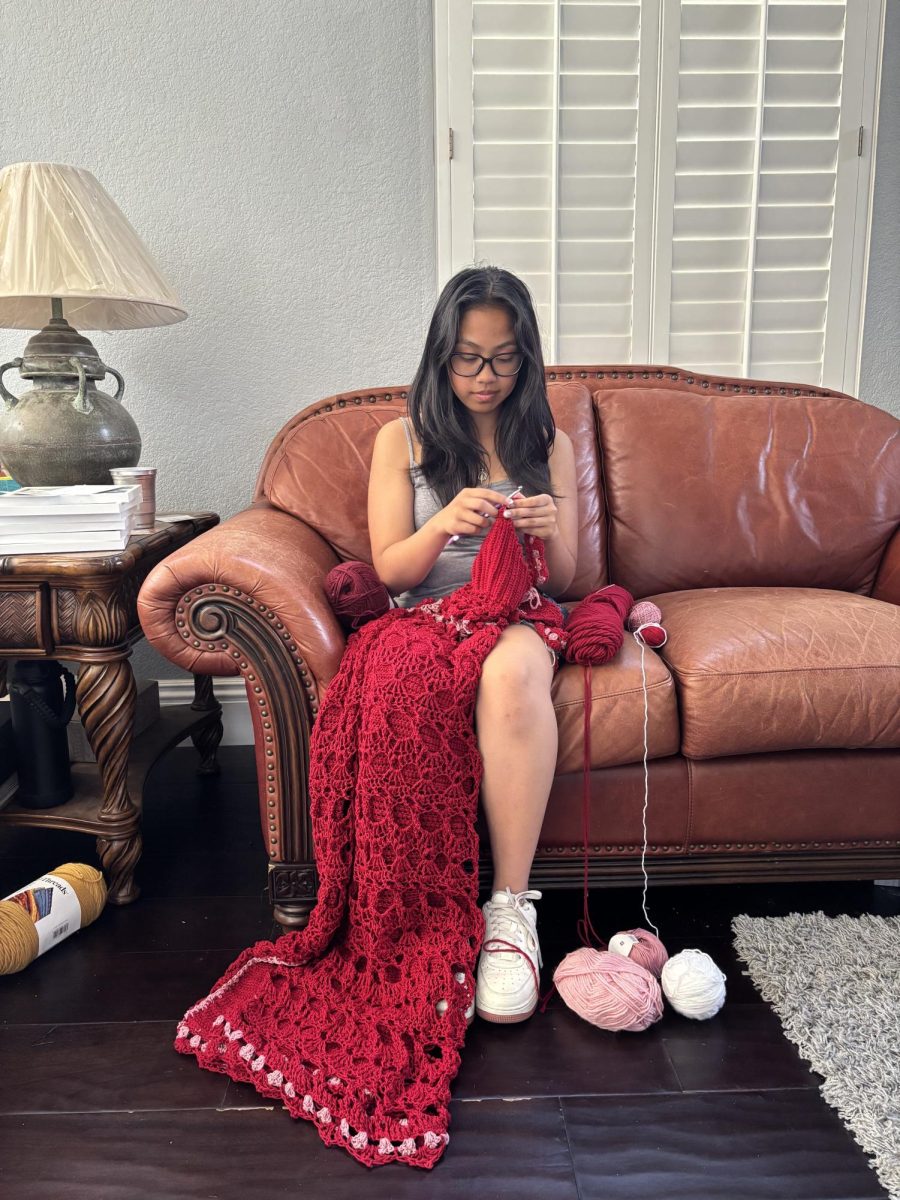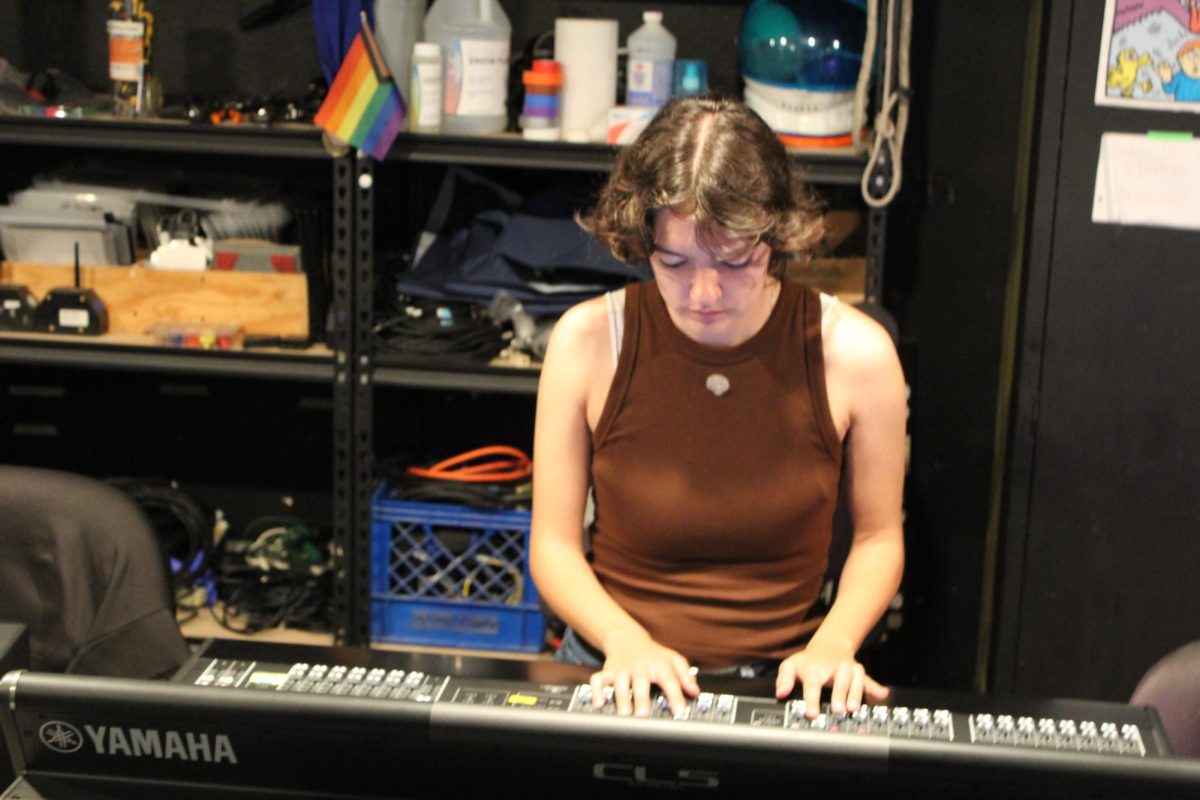Pablo Dealy (’10) never planned on working a desk job, for he had loftier ambitions. Having always liked airplanes, he decided that he would probably like flying them too.
An easy enough decision it seemed, until a doctor’s diagnosis made things a little more difficult.
“A cataract in my left eye and other sorts of smaller things damaged the optic nerve to the point where there’s no vision in my left eye,” Dealy said.
From there, it appeared unlikely that a realization of his dream would be feasible.
“Starting out, it was kind of a rocky road and I didn’t think it was actually going to be possible,” he said.
Pilots are required to have good near, intermediate and distant visual acuity, a fact that had some people dissuading him from the career choice.
It all changed, however, while Dealy was watching a CNN segment in the 8th grade. Though the story was only a small mention at the bottom of the screen, it caught his attention. A pilot had filed a civil suit against a commercial airline for denying him employment based on his monocular vision and the court ruled in his favor.
After seeing it, he began to research more on aviation. In the end the suit stuck in his mind because it showed Dealy that perhaps his dream could be possible; perhaps he could be a pilot after all.
But the matter of his monocular vision was only a logistical concern, one that was solved through legal precedent and the government’s standard of medical suitability. When it comes to his ability to do the job, Dealy does in no way view it as a hindrance.
“I don’t necessarily consider myself disadvantaged by any means,” Dealy said. “I just had to try harder and do my due diligence. I definitely would not consider my vision limitation to be a [defining] part of my career.”
That being said, an entirely new matter arose when he sought to pursue aviation: the matter of financial burden.
After saving up money working a summer job, Dealy was set to begin flying lessons his sophomore year with the aim of earning his private pilot license. This would permit him to be in command of a private aircraft after completing the required number of hours and passing multiple exams.
All throughout the next four years, Dealy put any money he earned towards lessons. While friends went out to the movies, he stayed in, content with the knowledge that he could spend it on more lessons.
Aviation is an expensive hobby; turning it into a career takes determination and flexibility, as it is not something guaranteed. Many times, Dealy pondered about “pouring thousands of dollars into a career that may or may not have been possible.”
Knowing the challenges that come when looking to flight as a hobby or career, Dealy decided to give back by teaching.
Through a charity organization known as the Gillespie Field Eagles, he teaches underprivileged high school students who may not have otherwise been exposed to aviation or been able to learn to fly.
Together, they find commonality through the struggle of not being the ideal pilot candidate.
One student, however, in particular stood out.
She was one of his best students, but she was also a nervous one.
“[She] was constantly looking for reassurance that she was doing everything correctly,” Dealy said.
Because of this, the girl was hesitant about flying solo for the first time. Dealy could remember a time when he felt the same apprehension so when the day came for her solo flight, Dealy secretly arranged for her family to be at the airport that day.
“I told her, ‘Don’t come back until you’ve done three landings by yourself,’” he said. “[It was] kind of the kick she needed to go out by herself.”
At the end of the girl’s flight, when she taxied down the runway, Dealy and her family were waiting. They were there for support and they were there to congratulate her on a job well done.
Helping kids through the organization is a reward in and of itself, and he enjoys being able to bring his love of flying to others.
“It’s great to see young people excited about aviation,” Dealy said.
Just as kids through the Gillespie Field Eagles find success, so too did Dealy when he was starting. After years of saving money, opting out of movie nights, and taking on flying lessons, the work finally paid off.
“It gets kind of frustrating [at first], because everybody else is doing more fun things,” Dealy said. “But now, I’m doing more fun things and they’re stuck in an office.”
By senior year, he had earned his private pilot license. However, his interest had evolved to become much more than a hobby as he now headed off to an aeronautical university.
Heading into his first year at Embry Riddle Aeronautical University, Dealy was prepared to study engineering. He was ready to study about the mechanics of flight and fall back onto the security of an engineering major.
It soon became apparent, however, that he did not enjoy what he was doing. He became dismayed when he learned it was not at all what he had imagined.
“When I was an engineering major, I was taking a lot of classes about thermodynamics and general design concepts,” Dealy said. “A lot of the concepts were things that could be hard to take in a practical manner.”
Instead of learning how everything on a plane worked, engineering would only teach him to focus on a small part of the plane. Dealy had been more keen to learn about the whole system, not just a small part of it.
Without the passion, Dealy found his workload to be burdensome. He became unhappy and it was only when he took classes on flying did he begin to enjoy himself again.
“My first semester I was there, I didn’t actually fly,” he said. “I need[ed] to do something for myself so that this [was]n’t quite as stressful.”
When it came to planes, he decided engineering them was not what he wanted to do.
“I found out I’d rather break it than build it,” he said.
So, he switched.
As an aeronautical science major, Dealy would now focus more on the application of his studies in flight situations, rather than working on a small portion of the development of a plane.
“Aeronautical science is more of a knowledge-based major, less designing and more practical application of how different designs affect performance and handling characteristics of airplanes,” Dealy said.
As a part of the curriculum at Embry Riddle, Dealy took classes to advance from a private pilot license to a commercial one.
After four years, Dealy was ready to graduate as a commercial pilot.
Life as a first officer, however, was not enough.
After another two years, Dealy worked to get captain status. Now, he runs the show as captain of the skies and crew.
“When you come down for a landing, and [you get] a soft smooth touch down as you pop out of the clouds at 100ft, it’s a huge rush,” Dealy said.
While his license officially gave him legal plane maneuvering status, no piece of paper could acknowledge the journey it took to get here.
From initial doubts to an expensive endeavor, Dealy was able to rise above the clouds and follow his dream.



